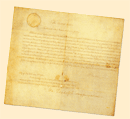


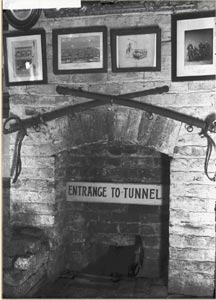
As the war progressed, food became increasingly scarce for the prisoners.
Officers stationed at Libby could cook for themselves in the kitchen if they had enough money to purchase food or received packages from home, which were often opened and pillaged by their captors. Both privates and officers suffered from starvation.
At 3 pm a great commotion was occasioned by the arrival of the second installment of rations, consisting of crackers and a concoction the most abominable...ever conceived of. It has been aptly described as a mixture of "fish oil, soft-soap, black beans, flies, bugs...and dirt." The effluvium arising from it would keel a pole cat over "quicker 'n greased lightnin." A half pint of this decoction and four crackers was the allowance to each man. I took the latter but the "soap" I renounced; the aroma was enough for me, and I never could overcome my aversion to it, though afterwards, when gaunt starvation stared me in the face, I have at times "held my breath and swallowed a little of it," feeling the absolute necessity.
-- Private Charles Colvin, Pemberton Prison
My first day's ration consisted of a piece of cornbread made out of very coarse meal about two inches square and four inches long, nothing else...The scanty provision made for our supply of daily bread, was of its self inadequate and insufficient to sustain life.
-- Colonel Henry Powell, Libby Prison
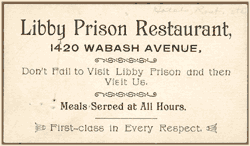
During the same month, Union forces advanced on Richmond in a failed effort to release the prisoners. Richmond citizens were terrified that the prisoners would escape en masse. Prison authorities buried two hundred pounds of explosives beneath Libby prison, threatening to detonate the powder if further break-outs were suspected. The Richmond prisons quickly emptied as inmates were sent further south to Andersonville, Georgia, where they were confined to an open stockade. Charles Colvin and John Ransom continued their diaries at Andersonville. Colvin wrote:

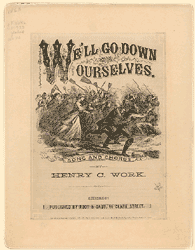
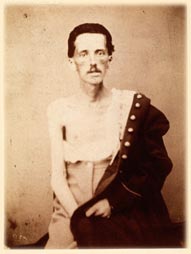

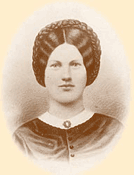
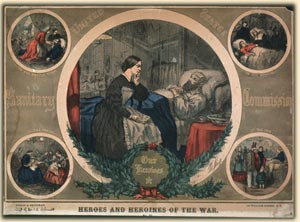
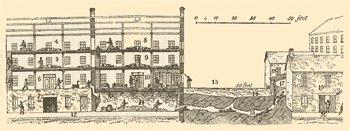
Women had a limited presence in the Libby Prison War Museum kitchen, including a "squaw knife and whetstone."
Gunther displayed Sanitary Commission papers in the kitchen of the Libby Prison War Museum. Women played a dominant role in the commission, which coordinated relief efforts during the war and sent food and clothing to the Richmond prisoners. John Ransom noted in his Belle Isle diary:
Lots of Sanitary stores sent on to the island for us, but as yet none have been issued, the rebels (officer in particular), getting fat on what rightfully belongs to us...A woman found among us -- a prisoner of war. Some one who knew the secret informed Lieutenant Bossieux and he immediately had her taken outside, when she told him the whole story -- how she had "followed her lovyer a soldiering" in disguise. (RANSOM 21-22).
Listen to Henry Work's ballad for Civil War women!
We'll Go Down Ourselves
You will need QuickTime to play the music in this section. Click here to download and install QuickTime. Choose the option below that matches your Internet connection:




